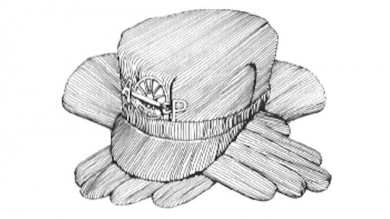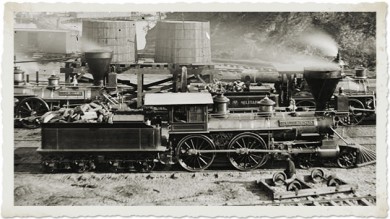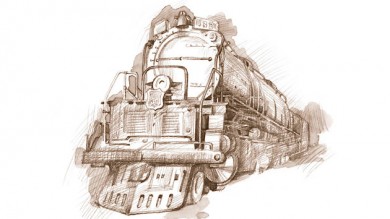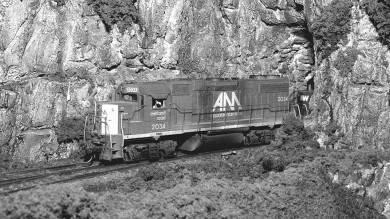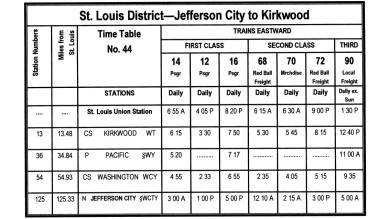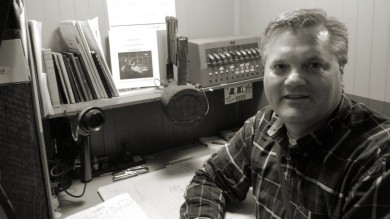Sharpen Your Modeling Skills
Some friends and I in the NMRA have challenged each other to become Master Model Railroaders. I thought the challenge would make a great opportunity for other fellow NMRA members in the Gateway Division to improve their skills and work on obtaining new skills for modeling. By working ...
Read MoreRailroads in the Civil War
Prior to the Civil War in this country, railroads were a new and relatively untried invention. During the war, soldiers, material and food were routinely transported by rail along with civilians and the raw material necessary to keep the war effort progressing. It was soon realized th...
Read MoreOperation Department 3
One way to add operating pleasure to your railroad, and hopefully prevent these types of mistakes, is to copy the actions of the prototype. Real railroads have documents known as a train procedures directory, click book and yard book. These different books were used by the train crews...
Read MoreOperation Department 2
One of the underused resources in the operator's bag of tricks is the use of staging. With this tool, a modeler can simulate bridge traffic, run throughs, junctions, and interchanges. Each of these can add interest and operational possibilities. Successfully done, hidden staging can g...
Read MoreTimetable and Train Order Operation, A Primer
Timetable and Train Order Operation Basics, a primer from the Gateway Division NMRA....
Read MoreOperation Department 1
Pacing devices, like junctions, seem to be used and thought of more in the planning stages of railroads. They allow operators more prototypical time to complete switching chores as well as provide for longer runs for mainline engineers....
Read MoreDispatcher’s Desk 14
I was reading some interesting letters that discussed the impact of real problems on a layout owner’s operations. The general thread of the discussion focused on how the prototype railroad would respond to a similar event. What havoc would this unleash on the scheduled trains, the con...
Read MoreDispatcher’s Desk 13
Operations can be somewhat intimidating. No matter how much you know about trying to emulate prototype practice on a layout, it will still make you nervous the first time you operate on a layout that is not yours. But this experience can be both fun and educational. Recently I went to...
Read MoreDispatcher’s Desk 12
I wonder how many of us who model passenger operations from the pre-Amtrak era model one of the important aspects of their operations. One of the most important aspects of a passenger train, at least to the accounting department, was the head end traffic. This traffic is the reason so...
Read MoreDispatcher’s Desk 11
You know, sometimes the hardest thing to do is what is normal, expected, and, routine. However, this is what we should strive for when we operate our railroads. The prototype railroads do the same thing day after day and for most of the railroaders the job can seem the same. Occasiona...
Read MoreDispatcher’s Desk 10
I attended the National Convention and Train Show in Long Beach, California and it was a fantastic experience. If you ever get the chance to go to a NMRA national convention, do go. It is an experience you will long remember. I attended many clinics and saw many sights. It was great t...
Read MoreDispatcher’s Desk 9
One item in railroading that is not often in the magazines is a discussion of signals and how they work on the prototype. What is often said by the modeler is “I operate in the dark,” or with CTC, or ABS, without much discussion of what these are and what they do. Perhaps it is best t...
Read More12
Copyright © 2025 Gateway Division NMRA. All rights reserved. | Website Info | Legal Notices

